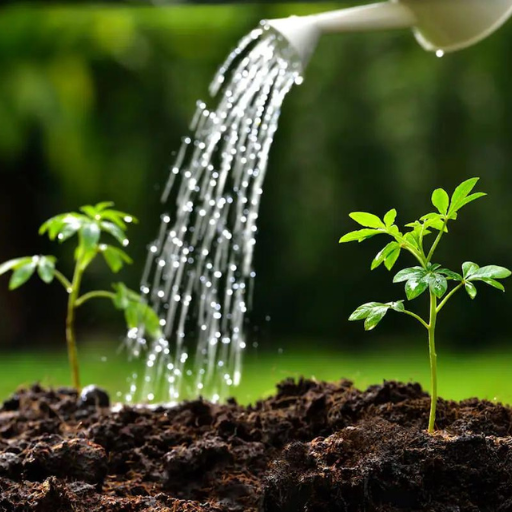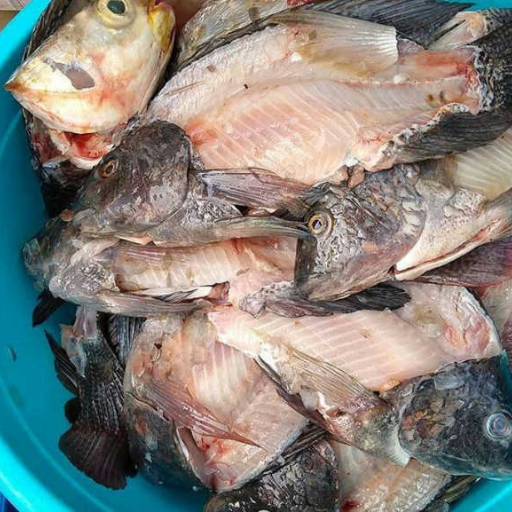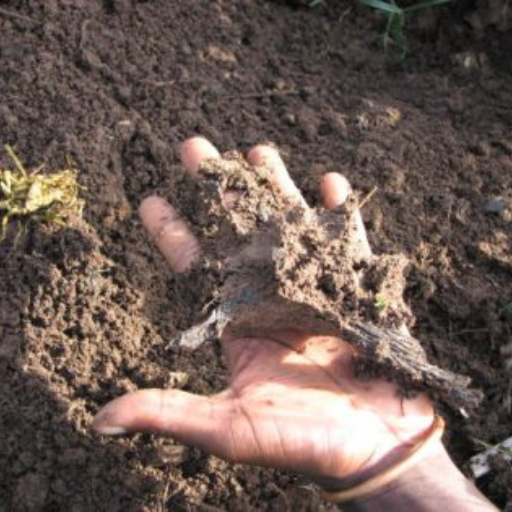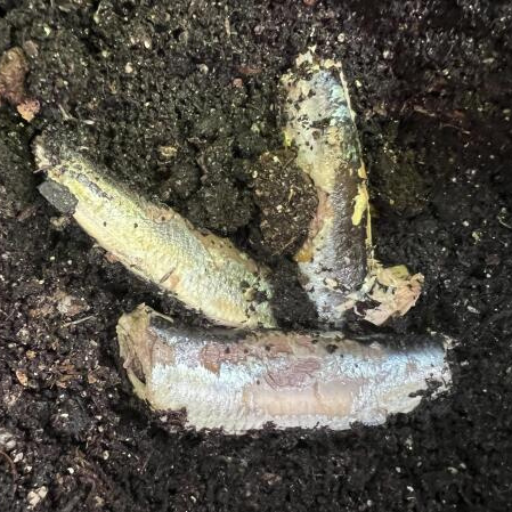Fish fertilizer has garnered attention in recent years for its numerous benefits in promoting plant health and growth. Fish emulsion is an organic alternative to chemical fertilizers, rich in essential nutrients, including nitrogen, phosphorus, and potassium. However, one of the often-overlooked components of this natural fertilizer is magnesium. This article explores the relationship between fish fertilizer and magnesium, highlighting its significance and how utilizing fish emulsion can enhance soil health and plant vitality. By understanding the roles of these nutrients, gardeners and farmers alike can make informed decisions for optimal crop performance.
What is Fish Fertilizer, and How is it Made?

Understanding Fish Emulsion Fertilizer Composition
Fish emulsion fertilizer is made with fish by-products, and they are homogenized as liquid nutrients. The constituents consist of nitrogen, phosphorous, potassium, and magnesium, which are fundamental nutrients. Fish is usually boiled or washed before pulverization with water, producing a pulp-like liquid containing essential ingredients beneficial for plants. These minerals can be in different ranges depending on the type of fish used and the fertilizer’s pfertilizer’sch a composition fosters not only plant nutrition but also the health of the soil since it enhances microbial activity.
The Use of Fish Parts for the Manufacturing of Organic Fertilizers
Fish parts, considered by-products of fish cultivation, have become important in manufacturing organic manure through the use of fish and fish waste as they aree rich in nutrients for plants and the soil. Deboned fish waste utilization helps enrich the nutrients macro and the micronutrients required in the body—nitrogen, phosphorous, potassium, calcium, and magnesium. Such components increase the availability of nutrients, contribute to soil physical properties, and enhance microbial functions that are essential in promoting healthy plant environments. Moreover, fish and their remains are organic matter, which assists in the soil moisture retention mechanisms, making it possible for plants to thrive. These substances will begin to slowly liberate the nutrients they contain as they break down, providing crops with nutrients over the production cycle.
Fish Fertilizers Are Made of Alaska Fish
The manufacturing of Alaska fish manure begins with the waste collection of fish, predominantly waste generated from the fishing industries. The fish parts are pre-cooked to break down large proteins and fats, then blended with water to form a dense and rich slurry. The slurry fermentation promotes the growth of nutrient-producing microorganisms. The fermented product is directed to filtration to obtain a liquid nitrogen, phosphorus, and potassium biofertilizer free from larger particulates. That is finally bottled or packaged, ready for sale, and used in gardens and plants as organic fertilizers.
Do Plants Need Magnesium from Fish Fertilizer?
Why Magnesium is Essential for Plant Growth
TMagnesiumiis very significant in plant development due to its role in chlorophyll, which is indispensable for photosynthesis. Magnesium deficiency in plants is associated with diseases such as chlorosis (yellowing of leaves), decreased plant height, and inferior fruit production. Magnesium facilitates the action of enzymes necessary for metabolic processes such as energy metabolism, nutrient absorption, and protein metabolism, which benefits the plants. Furthermore, magnesium facilitates better soil structure and is involved in nutrient mass balance, which helps enhance root development and plant stress management. Therefore, the use of fish fertilizer, which contains magnesium, is natural and substantially enhances the growth and activity of plants.
Impact of Fish Fertilizer on Soil Magnesium Content
Fish fertilizer helps to enrich the soil with magnesium by providing adequate sources of this vital nutrient. The application of fish fertilizer causes the breakdown of organic matter within the soil, releasing magnesium ions available for plant absorption. On top of that, the organic content of fish fertilizers improves the physical properties of the soil, such as aeration and drainage, aiding in the movement of magnesium to the rooting zones of plants. In addition, adding fish fertilizer also increases the breakdown of certain minerals, such as magnesium, rendering them more assimilable by the crops. In conclusion, this natural fertilizer, and the direct provision of magnesium, promotes a good balance of nutrients in the soil for the growth of plants.
Symptoms of Magnesium Deficiency in Plants
Magnesium deficiency symptoms in plants show themselves in several highlighted areas. Among the most widespread signs is interveinal chlorosis, characterized by the pale yellow regions forming in the green tissue between the leaf veins. This symptom is often first observed in older leaves as magnesium is mobile and constant during active vegetative growth. The latest leaves with young stem tips receive fresh supplies. In addition to chlorosis, the stature of the affected plants is significantly reduced, and so is their resistance to diseases. Moreover, magnesium deficiency may also cause upward curling of leaves, necrosis at the edges of leaves, and poor development of fruits, affecting yield and quality. These signs can be addressed through constant monitoring and appropriate interventions in good time.
How to Use Fish Emulsion Fertilizer in Your Garden?

Liquid Fish Fertilizer Application Practices
When using liquid fertilizer, especially fish, guidelines on dilution should always be observed. For instance, it is wise to apply a mixture of 1 to 10, i.e., 1 part fish emulsion and ten parts water, to protect delicate plants from possible over-fertilization in fish that would otherwise occur.
In most cases, fish fertilizer should be applied in the early hours of the day or late afternoon so there will be less evaporation and more absorption. This timing also helps to reduce the possibility of leaf burning from the fertilizer’s nfertilizer’sery four to six weeks should also be adequate because fish emulsion should be applied after such intervals during the growing season. It is a good maintenance measure that breaks the cycle of too much or rapid inflow of nutrients in the soil and the formation of pockets of nutrients in the soil.
When crops are being fertilized, especially with the above products, great care should be exercised to ensure the fertilizer goes into the root zone. Use a watering can to apply directly onto the soil and avoid applying the spray on leaves.
Fish emulsion is good for organic gardeners; it would be more useful in combination with other measures for soil improvement, such as applying fish fertilizer.
Foliar application or soil application: Which is the recommendation?
Anytime you are given a choice between foliar spray and soil application using fish emulsion fertilizer, it is always wise to analyze the advantages and disadvantages of each method. With a foliar application, nutrients, especially during critical periods of plant growth, particularly when plants fail to get enough nutrients, can be applied efficiently and at once through the leaves. This is especially useful for situations where the plants’ leavesplants’nstance, turn yellow or do not appear healthy.
However, soil application is more replenishing in that it releases nutrients for a more extended period and ensures that the plant’s root splant’ss able to access the nutrients. It enhances the healthy development of soil biology, and as the organic matter degrades, it continuously provides plant nutrients. In this case, soil application would seem to be the plant’s optionplant’srdeners who want to maintain the general condition of the soil and healthy root growth. However, the most appropriate way may include using all the two techniques in moderation depending on the plant type and where it is growing.
Fish Fertilizer with Other Nutrients and their Enhancements
Fish fertilizer can also be used with other nutrients to improve plant development or health. Specifically, when combined with nitrogenous fertilizers, fish emulsion sustains rich foliage growth while imparting a sound root system. Furthermore, if fish fertilizer is complemented with trace elements like magnesium and iron, it can help alleviate certain deficiencies that may restrict the growth of plants. Mixing it with compost may enhance regulated drainage and maintain soil structure, thus facilitating nutrient uptake. For optimal results, it is advisable to conduct a soil nutrient tests before mixing fertilizers and customize programs according to individual plant requirements.
What are the Benefits of Using Fish Fertilizer for Plants?

Fish Emulsion for Increased Nutrient Absorption
Fish emulsion enhances nutrient absorption in plants because it has a liquid consistency and is thus more easily absorbed. Aside from adding nutrients to the soil, fish fertilizers promote activity by the soil microbes, making the nutrients more accessible. This helps in the short-term supply of vital elements and improves the soil’s qualitysoil’sfish emulsion contains amino acids that promote the healthy growth of roots, enhance nutrient uptake by a plant, and increase tolerance to stress and diseases. Regular use of fish emulsion is likely to make the plant soil ‘sr, greener a’d more fruitful; hence, it is an unbeatable must in any gardening practice.
Contribution of Organic Matter from Fish Fertilizer
Fish fertilizer comes with the required nutrients, but more importantly, it adds organic matter to the soil. It is considered another form of organic matter that contributes to improving soil quality and texture, hence enhancing aeration and moisture generation. In so doing, the emulsion of fish results in a rise in the percentage of humus in the soil, which assists in retaining water and nutrients in the soil. This organic food helps the growth of a good population of helpful microorganisms, which are responsible for the breakdown of organic waste materials and the liberation of nutrients, making it capable of supporting plant growth in a better way. All in all, adding fish fertilizer helps improve the condition of soils with favorable potential growth of plants in the future.
Fish Fertilizer vs. Artificial Chemical Fertilizer
A comparison of fish fertilizer with chemical fertilizers shows a few noticeable advantages, which might affect a gardener’s irogardener’s. Fish fertilizers are made from organic materials and provide nutrients in an extended release manner, hence there is no wastage of the nutrients and they promote steady growth. This organic characteristic doesn’t just adoesn’the overall health of the microbiome in the soil but also increases the soil’s structusoil’s moisture retention ability. However, with chemical fertilizers, such as the traditional NPK fertilizers, plants receive the nutdoesn’tin cnutdoesn’tinamounts so that the response of plants to the fertilizer is rather fassoil’sthis fassoil’sthisoil in the long term due to the erosion and leaching of nutrients. Furthermore, it is known that chemical fertilizers yield practical use regarding all-day soils presenting optimized nutrient blends; however, inefficient application of these fertilizers leads to soil degradation and low levels of biological activity. It can be concluded that using fish fertilizer instead of such chemical additives contributes not only to the wellness of the plants but also promotes sustainable practices within the gardening field.
What Should You Know About Fish Fertilizer and Other Nutrients?

Fish Fertilizers – the Balance of N, P, and K
In using fish fertilizers, it is my goal to make sure that the proportions of nitrogen (N), phosphorus (P), and potassium (K), which are found in fertilizers, promote plant growth. Most fish fertilizers are nitrogen-rich, enhancing the leaf cover and rapid growth. To counter this, I ensure that the phosphorus and potassium levels are enough to facilitate root and flower/ fruit growth. I like to glance at the N-P-K ratio of the fertilizer packaging and tailor my application rate around it per plant requirements. Employing fish fertilizer in such ratios enables me to increase nutrient availability while safeguarding the soil, leading to a productive and healthy garden.
The action of fish fertilizer on soil calcium and sodium content levels
In my dealings with fish fertilizers, I have concluded that they can, most of the time, enhance calcium and sulfur content in the soil. There is always a good percentage of organic material in the fish fertilizers, which improves the soil porosity and fortifies the availability of such valuable elements. It looks more deeply into the functions of calcium and sulfur; I understand that calcium is essential for cell wall formation, and plant structure. Sulfur is needed in the formation of proteins and enzymes. In addition, by integrating fish fertilizer into my gardening habits, I’ve grown betI’veplants that are healthier and growing more than before because the calcium that was incorporated supports some of the functionality of the tissues and some of the dead spaces with salts and water. This peculiar method reduces the growth of antagonistic organisms.
Knowing the Concept of the 5-1-1 Ratio in Fish Fertilizer
When fish fertilizer is represented with a 5-1-1 ratio, that means the Nitrogen, Phosphorus, and Potassium content in any fish emulsion product is that distribution. Simply put, there are five parts nitrogen, 1 part phosphorus, and 1 part potassium. This ratio is beneficial when vegetable plants are to be fed because it promotes vegetative growth. There is something about the nitrogen in abundance that supports the most vigorous growth, aiding flowering and rooting the phosphorus and potassium, which are balanced. In reasonably proportional amounts and using fish fertilizer with 5-1-1 proportions, my plants are consistently provided with nutrients that help improve their condition and growth.
Reference sources
- Fish Emulsion Fertilizer – This source mentions that fish emulsion contains appreciable amounts of magnesium and other nutrients.
- Nutrients of Fish Fertilizer – This page provides a detailed breakdown of the nutrient content in fish fertilizer, including magnesium.
- Learn How and When to Use Fish Emulsion Fertilizer—This article discusses the nutrient richness of fish emulsion, highlighting the presence of magnesium among other trace elements.
Frequently Asked Questions (FAQs)

Q: Does fish fertilizer contain magnesium?
A: Absolutely; magnesium is present in most fish fertilizers as a micronutrient that encourages plant growth.
Q: What type of plants can be benefited by fish fertilizer?
A: Fish fertilizer contains many nutrients, so it can be used on many demanding plants, such as blueberry bushes and different types of peppers.
Q: How is fish fertilizer different from granular fertilizers?
A: Fish Fertilizer is a liquid fertilizer that is many times faster than granular, which removes the nutrients enabling the child to fully absorb the nutrients that the plant needs.
Q: Is it safe to use fish fertilizer with a hydroponic setup?
A: Yes, fish fertilizer can be used in hydroponic setups; however, nutrient levels should be controlled, as plants also need balance to grow.
Q: What should I do if I suspect my plants might be low on nitrogen?
A: If your plants are suffering from nitrogen deficiency, you can apply fish fertilizer because nitrogen is abundant in the fertilizer, and nitrogen deficiency is thus very quickly correctable.
Q: Can I use fish fertilizer made from fresh fish without putting my health at risk?
A: It is perfectly safe to use fertilizers such as Neptune’s HarvNeptune’s of fresh fish. It is because such fish fertilizers have beneficial nutrients for your compost pile or garden.






